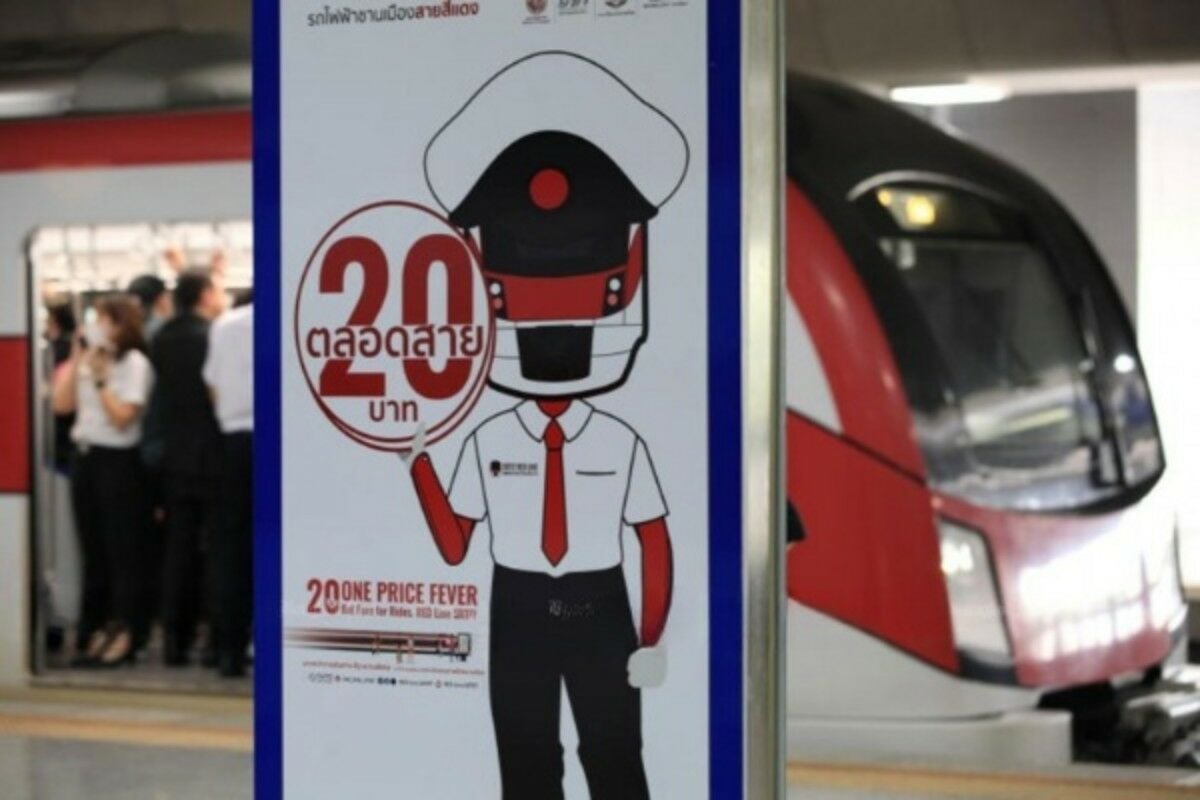Thai Cabinet extends 20-baht train fare with 400m baht budget

The Thai Cabinet has sanctioned a budget of 400 million baht to extend the 20-baht flat fare for the Red and Purple electric train lines for an additional year. This decision aims to provide continued financial relief to commuters using these lines.
The extension pertains to the State Railway of Thailand (SRT) Red lines, which include the Nakhon Withi Line running from Krung Thep Aphiwat Central Terminal to Taling Chan, and the Thani Ratthaya Line from Krung Thep Aphiwat Central Terminal to Rangsit in Pathum Thani. Additionally, the Metropolitan Rapid Transit (MRT) Purple Line, stretching from Tao Poon station in Bangkok to Khlong Bang Phai in Nonthaburi, is also included in this extension, as announced by Government Spokesperson Jirayu Houngsub yesterday, November 29.
The flat fare policy, which was initially set to expire, will now remain effective until November 30, 2025. Jirayu mentioned that similar fare strategies for other lines are currently under consideration.
In contrast, fares on other mass-transit systems continue to fluctuate based on distance, with prices on the MRT routes ranging from 17 to 43 baht and the BTS Skytrain system charging between 15 and 62 baht.
Transport Minister Suriya Jungrungreangkit highlighted that the primary objective behind the 20-baht flat fare is to alleviate financial burdens on the public, combat social inequality, and enhance accessibility for all citizens. He is advocating for a 20-baht flat rate across all electric train lines serving Greater Bangkok by September next year.
To facilitate this expansion, the government anticipates the need to acquire concessions from other operators, which could cost hundreds of millions of baht. To partially fund this initiative, the minister has proposed a congestion charge of 40 to 50 baht for motorists using major roads in the capital region, reported Bangkok Post.

Suriya addressed concerns regarding potential financial losses from the 20-baht policy, clarifying that while the Red and Purple lines initially faced a daily loss of 6.9 million baht, the situation improved significantly with a surge in passenger numbers.
“As a result, revenue rebounded within three months, with the number of passengers having risen by 26.4% since the lower fares were introduced in October 2023.”
Frequently Asked Questions
Here are some common questions asked about this news.
Why might a flat fare policy help reduce social inequality in Thailand?
It ensures equal access to transportation, lessening the financial burden on lower-income individuals and promoting economic mobility.
How could a congestion charge impact traffic and public transit in Bangkok?
It could reduce road congestion by encouraging public transit use, potentially increasing revenues for sustainable fare policies.
What if the flat fare policy is expanded to all train lines in Greater Bangkok?
It could significantly increase overall ridership, necessitating infrastructure improvements and possibly reshaping urban commuting patterns.
How do fluctuating fares on other transit systems affect commuter behavior compared to the flat fare system?
Variable fares may deter frequent travel, whereas flat fares encourage consistent usage, boosting ridership and accessibility.
What economic factors could influence the success of the 20-baht flat fare initiative?
Passenger volume growth, operational costs, and public acceptance of congestion charges will play crucial roles in its sustainability.
Latest Thailand News
Follow The Thaiger on Google News:


























